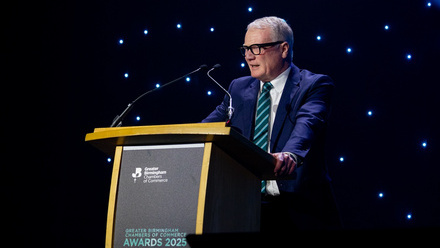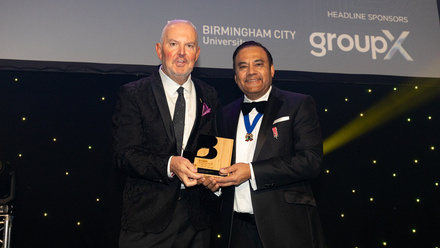Army of ethical hackers help university land global cyber security prize

Training ethical hackers to combat the growing threat of cyber attacks around the globe has earned Birmingham City University (BCU) a top accolade.
For the third straight year, the university has received the EC-Council’s prestigious Academia Instructor Circle of Excellence Award for its work educating and training the next generation of cyber security experts.
“There are thousands and thousands of cyber attacks taking place every day,” said Ron Austin, associate professor in Network Security at BCU.
“The University is helping combat those attacks by training engineers, graduates and postgraduates to understand how an attacker thinks and how they might break into a network.
“These are ethical hackers, the good guys. They test and protect a network by identifying vulnerabilities and helping fix them.”
Dr Umar Daraz, director of Innovation and Partnerships at BCU, said the EC-Council award was deserved recognition for the University’s academic researchers.
He added: “The ground-breaking work and training of next generation cyber security experts at the University not only pushes the boundaries of knowledge but also plays a role in fortifying our cyber defences in a rapidly evolving digital landscape powered by the artificial intelligence (AI) revolution.”
Professor Hanifa Shah, pro vice-chancellor STEAM and executive dean of the Faculty of Computing, Engineering and Built Environment at BCU, added: “Cyber security has always been important, but that importance is growing.
“I’m pleased that our College of Computing’s contribution to a UK priority area - training the next generation of cyber security experts - has been validated in this way.
“The work we do here at BCU is fundamental to the University’s new strategy, which aims to power prosperity, create knowledge for good, and develop the talent for tomorrow.”
Stealing industrial secrets, accessing personal data, and taking control of computer systems has become big business for criminals.
“More and more people are reliant on IT and IT security today,” said Austin. “They expect their networks to work and be secure, just as they expect the lights to come on when they flick a switch.
“Attackers spend days, weeks, and even months trying to get into a network because it can be worth a lot of money to them. Tens of millions of pounds in some cases.
“What we are doing is ensuring that there are enough experts out there to help protect us.”
BCU trains around 100 students in cyber security each year through its respective Masters courses.
These students, who come from around the world as well as the UK, are in high demand because of the skills and experience gained while at the University.
“There is a lot of academic rigour,” said Austin. “For example, students not only need to be able to break into a system, but they must also be able to demonstrate how they did it, how to fix the vulnerability, and why their work is important.
“As a result, they get industry certification as well as a good master's degree.
“This makes them very attractive employees because the industry knows it hasn’t got to spend thousands of pounds on training. Our students have already had it.”
BCU graduates end up working around the world, in both the public and private sector, including for the UK Government and banking giants Lloyds.
“We’re embedding real employability skills into our programmes,” said Austin. “It’s paying off and the University is getting recognition as a result.”
The EC-Council is an influential cyber security certification, education, training, and services company based in Albuquerque, New Mexico.
Its annual awards highlight the highest levels of good practice taking place across the globe.
A full list of award winners can be found HERE.



